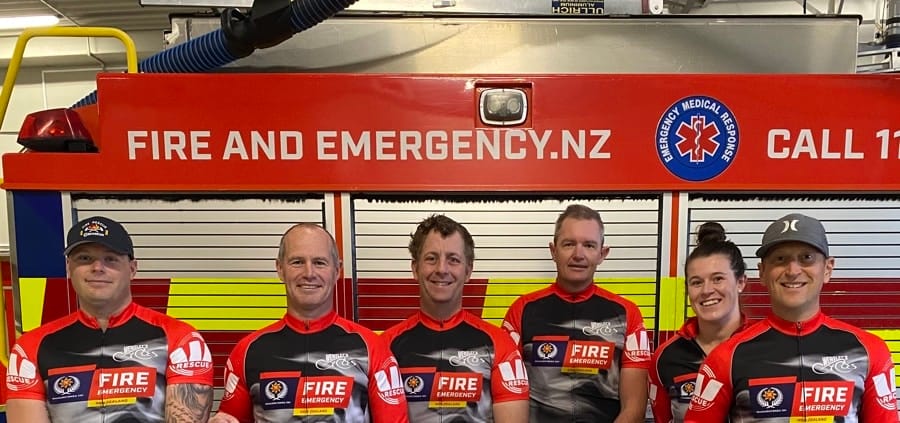It will be Police vs Fire in the inaugural 24 hour Bike-a-thon this Friday, as a fundraiser for the annual Westpac Chopper Rescue Appeal.
Invercargill career firefighter Brad Johnston, of team FENZ said they decided to take the opportunity to get involved, and also run a competition with Invercargill Police at the same time.
Whoever bikes the furtherest on the stationary bikes outside the fire station from Friday 7am, continuously until the next morning, wins the race.
Last year 45 keen cyclists raised $42,000 for the annual appeal, biking from Invercargill to Queenstown.
Southland has played its part in the annual appeal for the past 11 years, and so far already raised $753,000 from its yearly 245km bike ride.
About six participants from each team will be involved in the Bike-a-thon, but not all at the same time. Policeman Brook Armishaw will be the exception – biking the length of Mt Everest over 12 hours.
The rest of the team members will be rotating in and out depending on what shifts they are working.
“We’d like to see it turn into an annual event,” Brad said.
Participants were hoping to raise a minimum of $6000 from the Bike-a-thon and are relying on the public to come down and support them.
The event will be happening on the Jed Street side of the station, in the spare engine bay area.
“So people can pull up and say gidday,” he said.
Asked what would motivate the teams to push the pedals when the going gets tough, Brad said there would be plenty of good humour and banter, great music and of course chocolate.
The Lakes District Air Rescue Trust (LDART) has provided 24/7 emergency and aerial rescue services over much of the southern region of New Zealand since 1991.
From bases at Queenstown and Te Anau the contracted helicopter operators Helicopters Otago EMS Limited and Southern Lakes Helicopters provide an experienced and integrated service dispatched through the St John Communication Centre, NZ Police or the National Rescue Coordination Centre (RCCNZ) based out of Wellington.
Unfortunately, these services are not fully funded by the agencies which employ the regions operators, and thus the provision of service is heavily dependent on continuing sponsorship and additional support from many successful companies, organisations, trusts and individuals.


